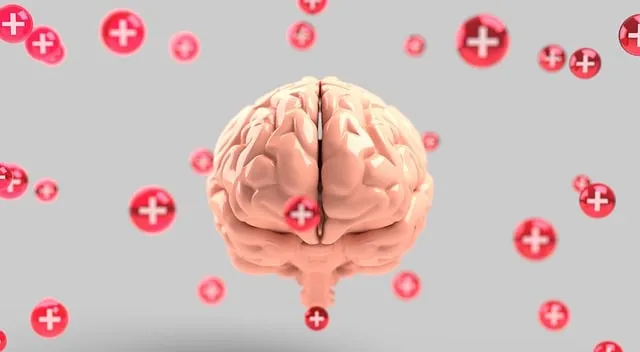Broomfield Kaiser Permanente Psychiatry is revolutionizing mental health care through a multi-faceted approach combining cutting-edge technology and holistic, evidence-based practices. They utilize AI-driven diagnostic software, advanced neuroimaging, and digital risk assessment tools to improve the accuracy of mental illness diagnoses. Integrating these innovations with continuous professional development for their psychiatrists, psychologists, social workers, and primary care physicians, they foster a collaborative environment that enhances patient outcomes by addressing self-esteem, emotional regulation, and social skills. This holistic model ensures comprehensive evaluations considering both medical data and social contexts, ultimately improving patient care and fostering supportive environments.
Mental illness diagnosis accuracy is a critical aspect of patient care, and continuous improvement efforts are essential. This article explores three key initiatives aimed at enhancing diagnostic practices at Broomfield Kaiser Permanente Psychiatry. We delve into their Enhancing Diagnostic Tools program, integration of innovative technologies, and Collaborative Diagnosis Approaches, showcasing how these strategies raise diagnosis accuracy and improve patient outcomes in mental health care.
- Enhancing Diagnostic Tools and Training at Broomfield Kaiser Permanente Psychiatry
- Integrating Innovative Technologies for Improved Mental Health Diagnosis
- Collaborative Approaches to Raise Diagnosis Accuracy and Patient Care Standards
Enhancing Diagnostic Tools and Training at Broomfield Kaiser Permanente Psychiatry

At Broomfield Kaiser Permanente Psychiatry, efforts to enhance diagnostic tools and training are continually being implemented with a focus on improving accuracy and care. The team is dedicated to staying at the forefront of mental health diagnosis by integrating the latest research and technology into their practices. This includes adopting advanced assessment techniques, such as digital risk assessment tools, which allow for more comprehensive evaluations of patient symptoms and contextual factors.
Through ongoing professional development programs, Broomfield Kaiser Permanente’s psychiatrists are equipped with the skills to recognize subtle cues and complex presentations of various mental health conditions. The training emphasizes the importance of a nuanced approach, considering not just clinical manifestations but also the unique social and cultural contexts that can influence mental wellness. These initiatives aim to provide Anxiety Relief and promote Mental Wellness by ensuring accurate and timely diagnoses, thereby improving patient outcomes and fostering a more supportive environment for those seeking psychiatric care.
Integrating Innovative Technologies for Improved Mental Health Diagnosis

At Broomfield Kaiser Permanente psychiatry, efforts to improve mental illness diagnosis accuracy have embraced innovative technologies. Digital tools such as AI-driven diagnostic software and advanced neuroimaging are being integrated into clinical practice. These technologies offer a more nuanced understanding of patients’ symptoms and underlying neurobiology. For instance, AI algorithms can analyze vast amounts of medical data and patient history, providing psychiatrists with predictive insights that enhance diagnostic precision.
Furthermore, these advancements complement traditional assessment methods like psychological testing and clinical interviews. By combining technological prowess with human expertise, healthcare providers aim to improve not only diagnosis but also treatment planning. This integrated approach focuses on holistic improvement, targeting areas such as self-esteem improvement, emotional regulation, and social skills training, ultimately leading to better patient outcomes.
Collaborative Approaches to Raise Diagnosis Accuracy and Patient Care Standards

At Broomfield Kaiser Permanente psychiatry, collaborative approaches are revolutionizing diagnosis accuracy and patient care standards. By fostering multidisciplinary teams comprising psychiatrists, psychologists, social workers, and primary care physicians, the organization ensures a holistic evaluation of patients’ mental health conditions. This integrated model not only improves diagnostic precision but also enhances patient outcomes through coordinated care plans.
Implementing evidence-based practices and risk management planning for mental health professionals is a cornerstone of this initiative. Through regular training sessions and workshops, healthcare providers are equipped with the latest techniques to identify subtle symptoms and complex presentations. Additionally, promoting positive thinking and confidence boosting strategies among staff members creates an environment conducive to accurate diagnosis and compassionate patient care.
The efforts made by institutions like Broomfield Kaiser Permanente psychiatry, through enhanced diagnostic tools, training, and innovative technologies, are pivotal in improving mental illness diagnosis accuracy. Collaborative approaches that involve healthcare professionals and patients can significantly raise diagnosis standards and patient care. As these strategies gain traction, the mental health landscape is set to transform, ensuring more effective support for individuals navigating mental illness.




